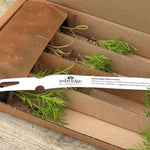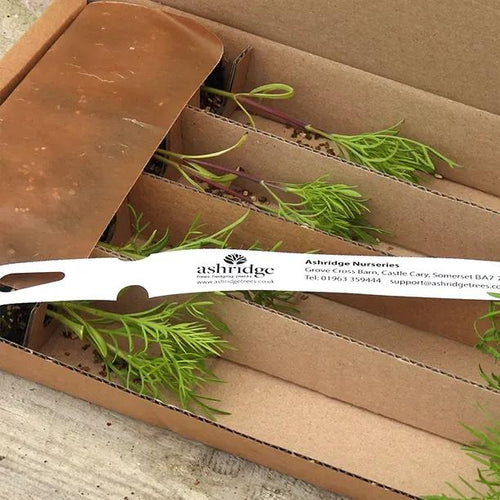Candy Stripe Cosmos Plants
Cosmos bipinnatus Candy Stripe is one for planting towards the back of a border, as it'll reach over 1m tall. Its flowers are large and gorgeous, a sweet confection of white daisy-like petals, the edges dipped in a deep raspberry glaze. Bees and other pollinators love its simple, open flowers, all the better for nectar-gathering. There are more compact varieties of cosmos, too, if you fancy something for pots and containers on the patio – take a look at our full range of cosmos seedlings. Cosmos are famed for their long flowering season, and this variety is no exception – it'll carry on producing flowers from early summer right until the cold days of November, as long as you do it a favour and keep deadheading. It's best to do thisn't just by nipping off the spent flowerhead but part of the stem, too, down to the first set of leaves. Candy Stripe also makes a great cut flower for bringing indoors for vases.
Garden Design Ideas
Cosmos look fantastic planted en masse, in big, bold groups. Candy Stripe would look fabulous combined in drifts with deep pink Sonata Carmine, for example, or as a contrast to the ruffled pink petals of Double Click Cranberries. Or combine with classic cottage garden favourites such as lavenders, shrub roses (the deep pink of Tuscany Superb would be a perfect match) or salvias. When planting, think a little about your soil type. If you garden on clay, improve the drainage with compost or manure. And if you have a problem with slugs and snails, wait until your seedlings are strong and sturdy before planting them out. Feed weekly with something like Tomorite, and you'll have flowers that go on and on.
Features
- Half-hardy Annual
- Colour: White with dipped pink edges
- Height: 120cm
- Planting Months: April to June/July
- Flowering: June to October
- Plant Spacing: 30cm
- Foliage: finely cut, filigreed

 Secure, One-Tap Checkout
Secure, One-Tap Checkout
 Hand Picked, Delivered to Your Door!
Hand Picked, Delivered to Your Door! 1 Year Bareroot Guarantee
1 Year Bareroot Guarantee




